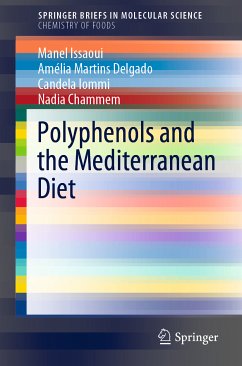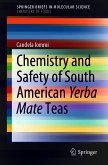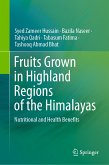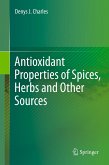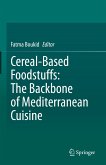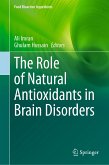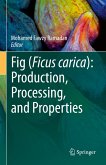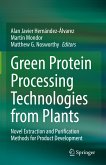This book focuses on polyphenols in the Mediterranean diet, providing a detailed overview of their chemical structure, extraction and analysis methods, and their role in the diet and in flavor.
Phenols are important not only in terms of preventing a number of diseases due to their antimicrobial and antioxidant effects, but also in shaping our perception of foods. The first chapter discusses consumers' sensory assessment of foods containing polyphenols in terms of flavor and color, as well as the chemical properties and natural sources of phenolic compounds. The second chapter examines hygiene and safety claims with respect to naturally occurring polyphenols, especially in connection with organoleptic features. The third and final chapter examines the dietary sources of these molecules from various fruits, including processed products such as infusions, wines, oils and olives.
Given its scope, this book is a valuable resource for researchers in academia and industry interested in food safety, hygiene and production issues related to the Mediterranean diet.
Phenols are important not only in terms of preventing a number of diseases due to their antimicrobial and antioxidant effects, but also in shaping our perception of foods. The first chapter discusses consumers' sensory assessment of foods containing polyphenols in terms of flavor and color, as well as the chemical properties and natural sources of phenolic compounds. The second chapter examines hygiene and safety claims with respect to naturally occurring polyphenols, especially in connection with organoleptic features. The third and final chapter examines the dietary sources of these molecules from various fruits, including processed products such as infusions, wines, oils and olives.
Given its scope, this book is a valuable resource for researchers in academia and industry interested in food safety, hygiene and production issues related to the Mediterranean diet.
Dieser Download kann aus rechtlichen Gründen nur mit Rechnungsadresse in A, B, BG, CY, CZ, D, DK, EW, E, FIN, F, GR, HR, H, IRL, I, LT, L, LR, M, NL, PL, P, R, S, SLO, SK ausgeliefert werden.

